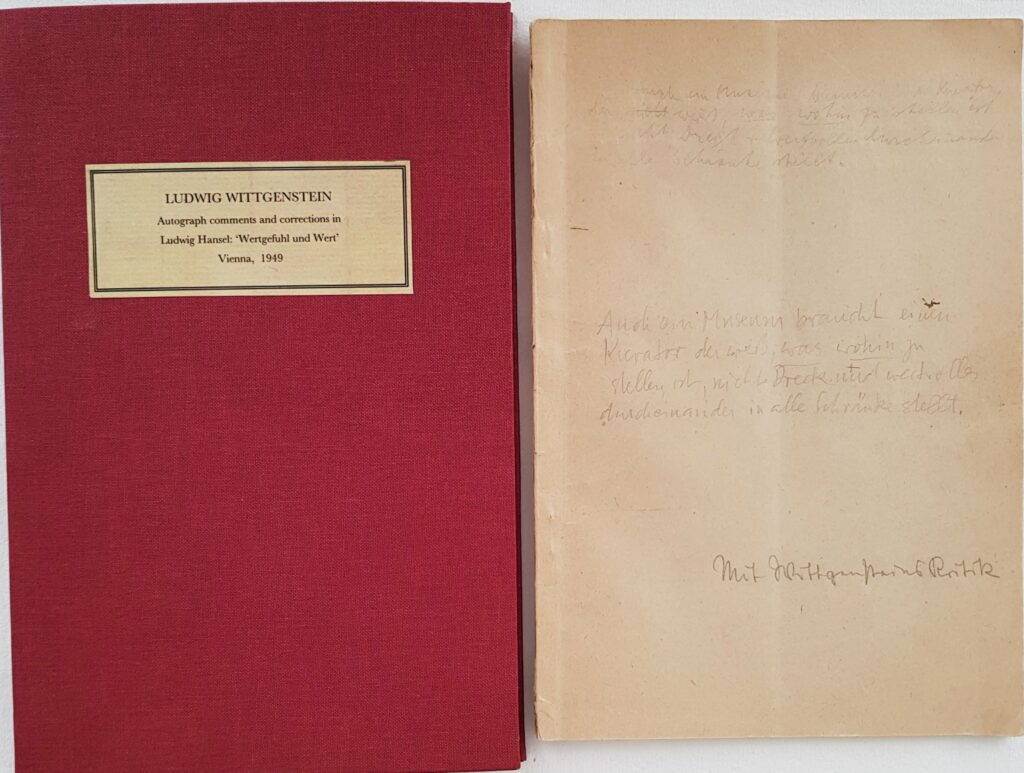
An important and highly interesting document for Wittgenstein studies, bearing eloquent witness to his forthright rigour in philosophy generally, and his late engagement with the theory of value, or axiology (or Wertphilosophie) in particular. Ludwig Hänsel (1886-1956) was one of the first readers of the Tractatus, having met Wittgenstein in early 1919 when they were fellow prisoners-of-war at Cassino, Italy, at the end of the First World War. They remained close friends for more than 30 years until Wittgenstein’s death in 1951. Hänsel became a teacher in Vienna, and wrote variously on educational theory, psychology, religion, literature and philosophy (on which he published some 20 articles, mostly, as here, about ethics). He was in the habit of sending his work to Wittgenstein for comment and correction. A few examples remain in private hands such as the present one in which Wittgenstein, pulling no punches, takes his old friend severely to task for unclear writing and sloppy thinking. (On the other hand, he does signify his approval of Hänsel’s points – by means of marginal exclamation marks – in no fewer than ten places).
Summarising his opinion on the front wrapper, Wittgenstein writes: “Auch ein Museum braucht einen Kurator, der weiß, was wohin zu stellen ist, und nicht Dreck und Wertvolles durcheinander in alle Schränke stellt” (museums need curators who know what goes where, and don’t jumble up the rubbish with the valuable stuff). In the margins of the text, like a schoolmaster, he convicts Hänsel of waffle (“Geschwätz, gehauen nicht & nicht gestochen!”), ambiguity (“Wie verschwommen!”) and lack of focus (“Wenn man sich mit jedem Esel herumschlägt, wird man leicht selber einer” – if you grapple with every donkey you’ll become one yourself). He asks at one point “Was ist durch diese Fassung geleitet?” (how does this get us any further forward?), and at another writes “Hier wird kein Problem gelöst, sondern nur das, was problematisch wiederholt” (here you haven’t solved the problem, only restated it). He also observes “Nimm die Wiederholungen fort & das Leere der Paragraphen wird sich zeigen” (take these repetitions out, and the vacuity of the paragraphs will be manifest). Towards the end, in mock-exasperation, he declares “Wenn das Philosophie ist, dann sollten die Menschen ein für allemal auf sie verzichten” (if that’s philosophy, then we should all give it up for good), and against Hänsel’s closing paragraph he suggests he keep his pearls of wisdom to himself – “Behalt’s bei Dir!”
